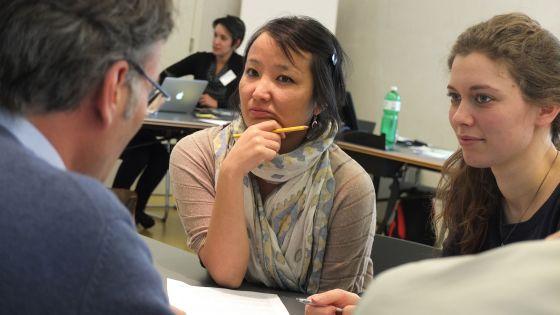Researchers’ gathering for r4d Skills Transnational Research Partnerships

Essential for projects on research for development are functional and fair partnerships. A workshop raised awareness and enabled reflection and exchange.
The r4d Skills Workshop on Transnational Research Partnerships attracted 26 participants to the premises of the Swiss National Science Foundation in Berne on 27 March 2015. It was jointly organised by the Council on Health Research for Development (COHRED) and the r4d programme and focused on how to build effective international collaborative research partnerships. At the core of each r4d project stands a partnership between researchers from Switzerland and at least one low and middle income country. For the successful conduct of research and the implementation of the results a functional and fair partnership is thus essential.
Tools for improving research partnerships
In an introductory presentation Carel IJesselmuiden from COHRED showed that there is still a major gap in knowing how to initiate and manage fair research partnerships between research institutions in the North and the South. Most of the current partnerships are focused on delivering products and not on building sustainable systems that address the local needs and concerns populations in low and middle income countries are facing. Awareness raising, e.g. through workshops like the r4d Skills, is essential to address this gap. Voluntary principles such as the "11 Principles of Research in Partnerships" established by the Swiss Commission for Research Partnerships with Developing Countries (KFPE) are a further step towards fostering balanced research partnerships. COHRED takes this step even further and develops practical tools aimed at driving fairer outcomes in collaborative research partnerships.
Jacintha Toohey from COHRED presented the Fair Research Contracting (FRC) Initiative that seeks to provide tools and resources for negotiating fairer research contracts. Working in groups and based on provided case studies and their own experiences the r4d Skills participants identified important issues that either hinder or promote fair research contracting and made suggestions to address existing challenges. Guidance notes for effective negotiation of research collaboration can be found on COHRED’s website. Najia Musolino from COHRED further introduced their Fairness Index (CFI) which is a tool currently being developed by a multi stakeholder consortium. Based on a series of indicators, the CFI will be designed to provide an assessment tool to stakeholders to examine and evaluate their respective research collaboration standards.
r4d Skills series
The r4d programme launched its event series r4d Skills on this occasion. Further learning events among r4d researchers will be organised and are aimed at those actively dealing with and being exposed to the challenges of contemporary inter- and transdisciplinary research for development, carried out in transnational research partnerships.
